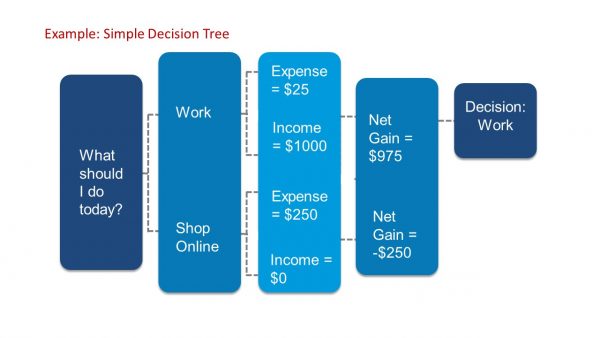Get Your Association on the Offensive—Mitigate Impacts of COVID-19

“In my mind, it’s inevitable that we’ll have a return of the virus … when it does, how we handle it will determine our fate,” Dr. Anthony Fauci, the director of the National Institute of Allergy and Infectious Diseases, April 30.
Dr. Anthony Fauci’s warning might make you want to put your mask over your ears instead of your nose. We would all like to see no COVID-19, hear no COVID-19, speak no COVID-19. Unfortunately, ignoring the health and economic danger is impossible, and neglecting to plan for an extended roller-coaster ride with Coronavirus is probably a recipe for disaster.
According to Rantt Media as of May 17, only nine states reported consistent declining rates of new cases over the previous two weeks. The virus has not gone away, and we are challenged to learn how to live in a new Low Touch Economy.
Here is the good news. Now that the shock of closing offices and canceling meetings is past and everyone is growing accustomed to virtual interaction, you have a chance to go on the offensive. There is time to make decisions that will support a stronger future and to identify nuggets of opportunity that could lead to new strategies and business. The news is filled with examples of how organizations are taking the offensive on COVID-19.
According to Axios: “The Federal Emergency Management Agency is preparing for hurricane season amid the challenges posed by social distancing guidelines in place to combat the spread of the coronavirus pandemic. “We’re doing a lot of things that are not necessarily in any playbook that has existed,” FEMA Administrator Pete Gaynor told Axios in an interview Saturday. “In some cases, we write the playbook as we go.”
Notre Dame University is starting classes earlier so that students can get home before Thanksgiving and complete the winter trimester online with a return to classes in the Spring. Using this plan the university will still collect a full year of tuition.
Be Proactive

The pandemic is that bully at camp who snuck up behind you and pushed you off the diving board before you were ready to jump. We’ve been forced into changes, like virtual work, leaner operations and cyber-everything, that have been on the horizon for years. Now is the time to fully commit to this new environment. These are steps you can take to make the plunge into the Low Touch Economy and put your association on the offensive:
Develop Digital Fluency
.orgSource has long advocated that a strong digital infrastructure coupled with an adaptive leadership style is the best hedge against disruption. If your organization has started a digital transformation, don’t get sidetracked. Digital competence is more important to relevance and viability than ever before. Now is the time to allocate resources to pay down technology debt.
Accept the Inevitable
Pretending that these changes won’t last is counterproductive. Social distancing is here to stay for the foreseeable future. If your organization was already seeing a decline in annual meeting participation, this is a good time to rethink education and networking strategies. Ramp up offerings on your learning management system. Bite-sized programming offers support for busy members and is an opportunity to involve volunteers in production and development. If you don’t already have an LMS, implementing this software should be a high priority.
Investigate the options for virtual meetings and learn how these platforms could benefit your organization.
Shed Excess Weight
The 2008 recession taught some associations the value of agility and operational streamlining. This is another situation where trimming is critical. Unproductive activities and programs limit the ability to focus on high priorities.
Both large and small organizations can be impeded by boards that are overly operational. Take steps to create a lean governance structure that allows for quick decision-making. Associations that have not switched to a nimbler governance style should consider how they will make this transition.
Make Participation Easy
Even members who want to be deeply involved with your association probably do not have time now. This isn’t likely to change in the future. Engage your constituents by creating opportunities that make it easy for them to participate. Offer ad hoc assignments and task forces over long-term committee service.
Create Community

We are all going through something extraordinary, and not in a good way. Whether it’s losing income or a job, being overworked or feeling isolated, people want to connect. Your online community can be the source of comfort and companionship. Make your platform a place where your members will find empathy and a digital home.
Reimagine
Above all, reinvent what is possible. Don’t let your imagination be confined by history or tradition. Find the innovators on your team and put them front and center. Seek outside expertise, guidance, and inspiration, if necessary. We all need a jumpstart for creativity.
Be Objective
Going on the offensive with COVID may call for decisions that are emotionally or politically challenging. In a high-stress environment, it’s easy to react from fear or indecision. Scenario planning and decision trees are tools .orgSource uses to remove emotions from the discussion and give participants a greater sense of control.
Scenario planning revolves around these six core questions:
- Why are we engaged in planning now?
- What are the factors that are driving uncertainty, and how impactful could they be?
- What are the potential short, mid, and long-term impacts?
- What are the possible scenarios we are facing?
- What key indicators will show that we are moving closer to a scenario?
- What will the operating strategy be for each scenario?

Decision trees are a tool that the business world co-opted from computer programmers. They are a graphic framework that uses estimates and probabilities to project the likely outcomes and net gains of various alternatives. Decision trees are built from tables or matrixes that are illustrated in a branch format. They are easy to create, but it bears remembering that they are also only as good as the estimates used in the calculations. A key thing about decision trees is that you must be seeking to evaluate several options.
Success using these tools depends on leaders having the courage to insist on decisions that are productive over choices that are expedient or popular. Engaging a facilitator to lead the discussion can remove pressure surrounding controversial issues, keep the dialogue on target, and set your association up to take the offensive and mitigate the impact of COVID-19.
As a leader in digital transformation, .orgSource can position your association for success now and in the future. Click here to schedule a short consultation with me. I am always eager to meet new colleagues.

